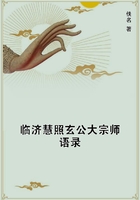However, it may justly be asked, whether our subjection to these affections, even while we follow virtue, is a part of the infirmity Of this life? For the holy angels feel no anger while they punish those whom the eternal law of God consigns to punishment, no fellow-feeling with misery while they relieve the miserable, I no fear while they aid those who are in danger; and yet ordinary language ascribes to them also these mental emotions, because, though they have none of our weakness, their acts resemble the actions to which these emotions move us; and thus even God Himself is said in Scripture to be angry, and yet without any perturbation.For this word is used of the effect of His vengeance, not of the disturbing mental affection.
CHAP.6.--OF THE PASSIONS WHICH, ACCORDING TO APULEIUS, AGITATE THEDEMONS WHO APE
SUPPOSED BY HIM TO MEDIATE BETWEEN GODS AND MEN.
Deferring for the present the question about the holy angels, let us examine the opinion of the Platonists, that the demons who mediate between gods and men are agitated by passions.For if their mind, though exposed to their incursion, still remained free and superior to them, Apuleius could not have said that their hearts are tossed with passions as the sea by stormy winds.(4)Their mind, then,--that superior part of their soul whereby they are rational beings, and which, if it actually exists in them, should rule and bridle the turbulent passions of the inferior parts of the soul,--this mind of theirs, I say, is, according to the Platonist referred to, tossed with a hurricane of passions.The mind of the demons, therefore, is subject to the emotions of fear, anger, lust, and all similar affections.What part of them, then, is free, and endued with wisdom, so that they are pleasing to the gods, and the fit guides of men into purity of life, since their very highest part, being the slave of passion and subject to vice, only makes them more intent on deceiving and seducing, in proportion to the mental force and energy of desire they possess?
CHAP.7.--THAT THE PLATONISTS MAINTAIN THAT THE POETS WRONG THE GODSBY
REPRESENTING THEM AS DISTRACTED BY PARTY FEELING, TO WHICH THE DEMONSAND NOT
THE GODS, ARE SUBJECT.
But if any one says that it is not of all the demons, but only of the wicked, that the poets, not without truth, say that they violently love or hate certain men,--for it was of them Apuleius said that they were driven about by strong currents of emotion,--how can we accept this interpretation, when Apuleius, in the very same connection, represents all the demons, and not only the wicked, as intermediate between gods and men by their aerial bodies? The fiction of the poets, according to him, consists in their making gods of demons, and giving them the names of gods, and assigning them as allies or enemies to individual men, using this poetical license, though they profess that the gods are very different in character from the demons, and far exalted above them by their celestial abode and wealth of beatitude.
This, I say, is the poets' fiction, to say that these are gods who are not gods, and that, under the names of gods, they fight among themselves about the men whom they love or hate with keen partisan feeling.Apuleius says that this is not far from the truth, since, though they are wrongfully called by the names of the gods, they are described in their own proper character as demons.To this category, he says, belongs the Minerva of Homer, "who interposed in the ranks of the Greeks to restrain Achilles."(1)For that this was Minerva he supposes to be poetical fiction; for he thinks that Minerva is a goddess, and he places her among the gods whom he believes to be all good and blessed in the sublime ethereal region, remote from intercourse with men.But that there was a demon favorable to the Greeks and adverse to the Trojans, as another, whom the same poet mentions under the name of Venus or Mars (gods exalted above earthly affairs in their heavenly habitations), was the Trojans'
ally and the foe of the Greeks, and that these demons fought for those they loved against those they hated,--in all this he owned that the poets stated something very like the truth.
For they made these statements about beings to whom he ascribes the same violent and tempestuous passions as disturb men, and who are therefore capable of loves and hatreds not justly formed, but formed in a party spirit, as the spectators in races or hunts take fancies and prejudices.It seems to have been the great fear of this Platonist that the poetical fictions should be believed of the gods, and not of the demons who bore their names.
CHAP.8.--HOW APULEIUS DEFINES THE GODS WHO DWELL IN HEAVEN, THE DEMONSWHO
OCCUPY THE AIR, AND MEN WHO INHABIT EARTH.
The definition which Apuleius gives of demons, and in which he of course includes all demons, is that they are in nature animals, in soul subject to passion, in mind reasonable, in body aerial, in duration eternal.Now in these five qualities he has named absolutely nothing which is proper to good men and not also to bad.















